The church of the Annunziata is located on Via dell’Annunziata, not far from Via Roma.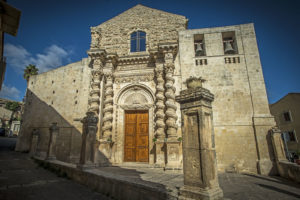
It is one of the oldest churches in Palazzolo, probably built between the 12th and 14th centuries.
It was not spared by the tragic earthquake of 1693 and was partially destroyed.
The confraternity of the Annunziata wasted no time in overseeing the reconstruction. The Baroque façade was redesigned according to a design by Giuseppe Ferrara.
The entrance is preceded by a particular triangular-shaped
parvis
enclosed by a small wall and surmounted by small pillars. Unfortunately the façade remained unfinished. Only the main portal and the decorations around it were completed; four
Solomonic columns
,two on each side, and the
trabeation
stand out.
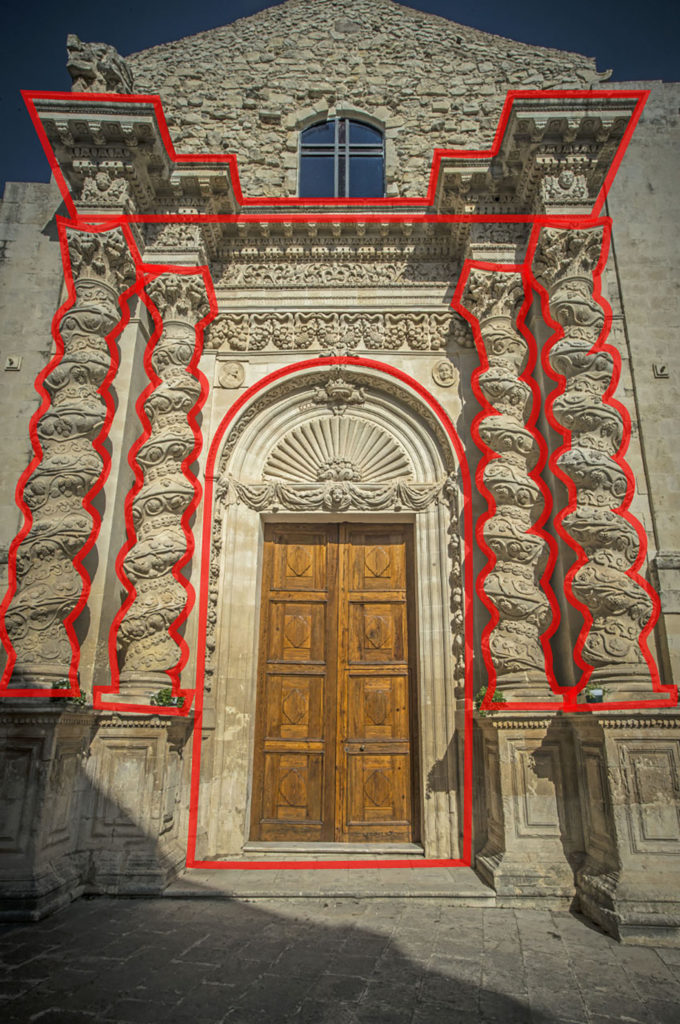
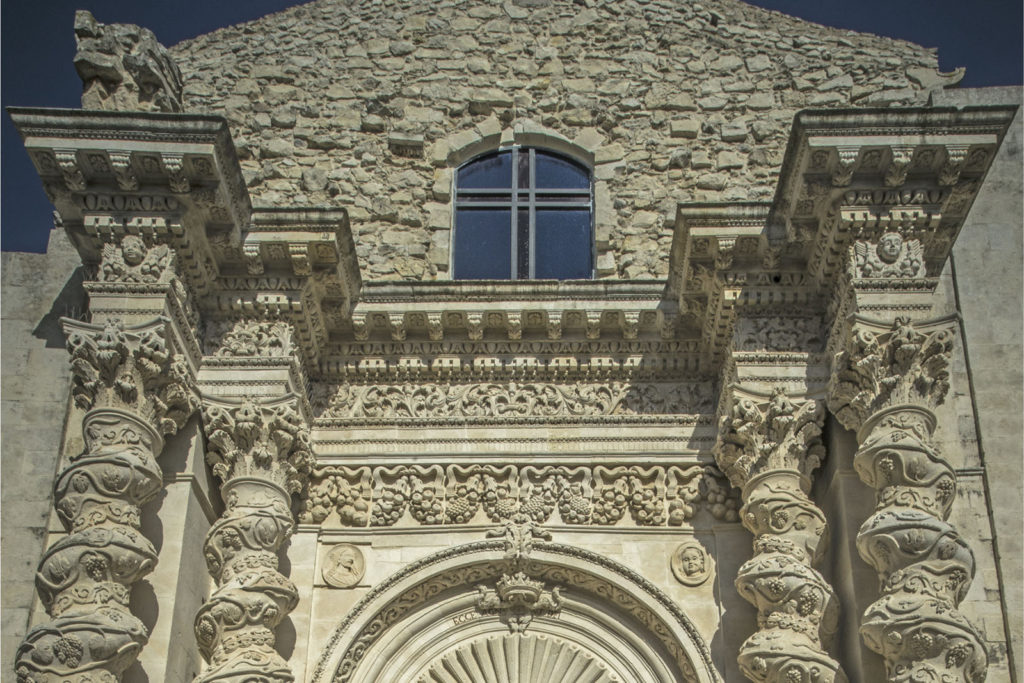
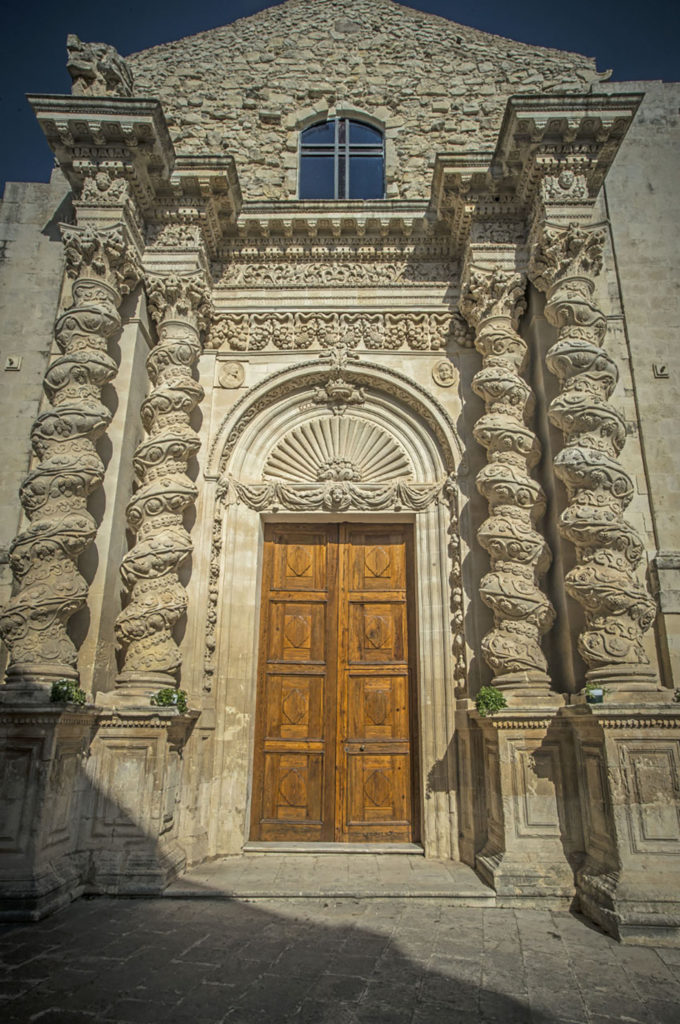
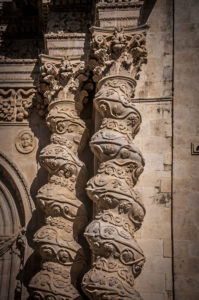
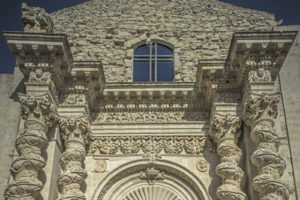
The richness and attention paid to the masterful decorations is striking. Quince, grapes, figs, pomegranates,
cherub
, faces, festoons, abstract elements and plant elements were all carved with extreme precision.
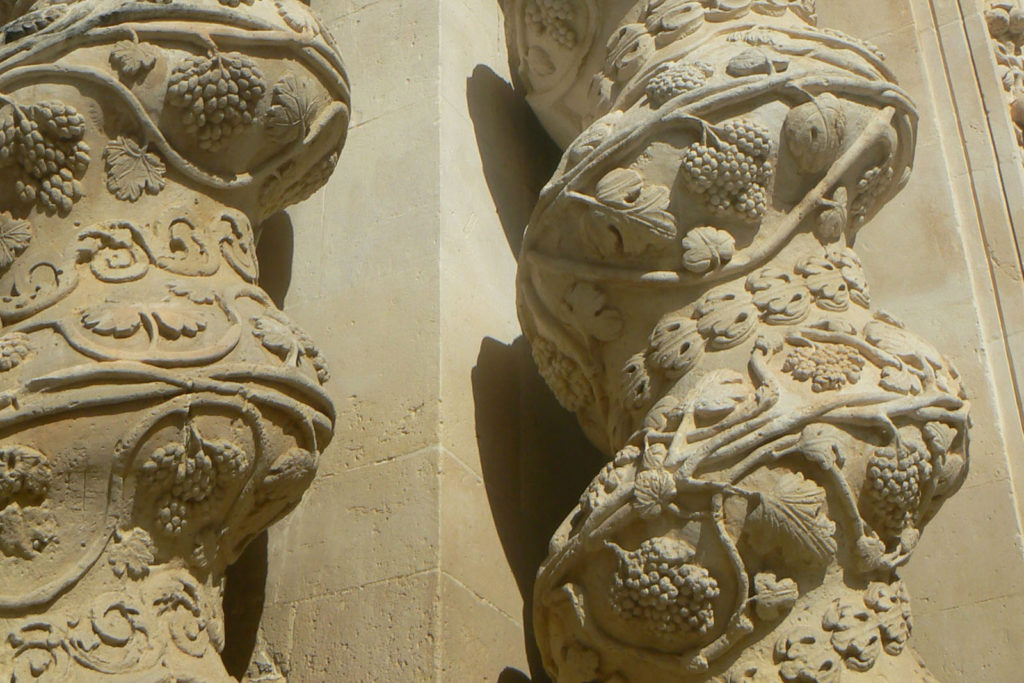
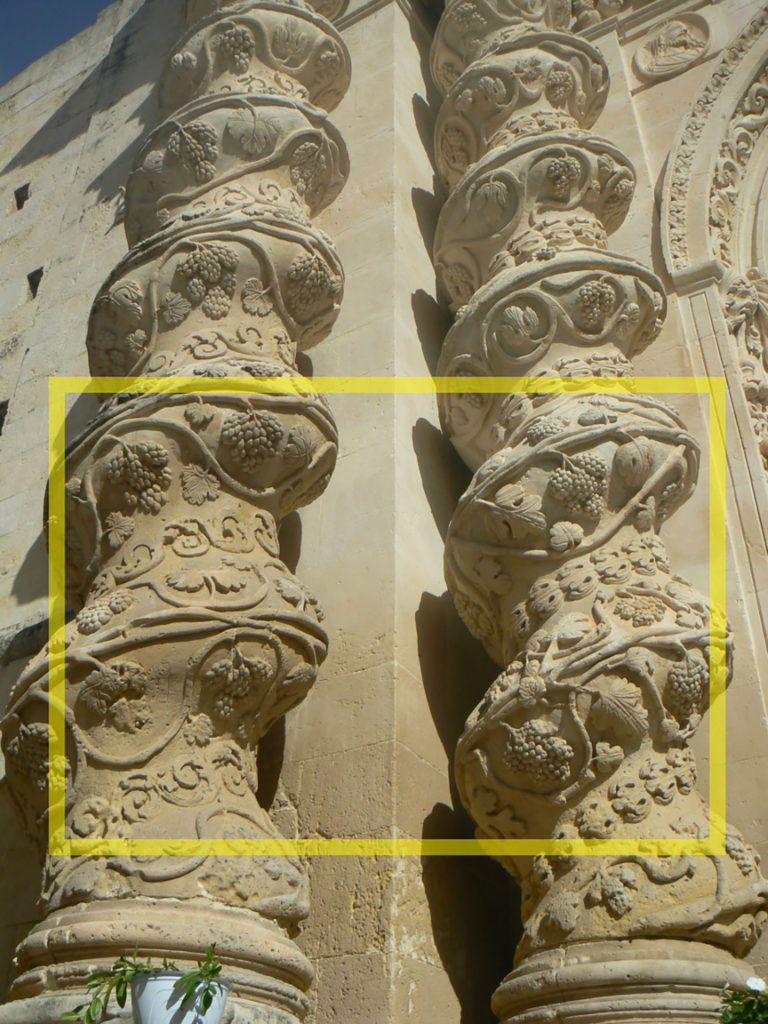
The church was redesigned with three
naves
with large arches to divide the main nave from the smaller one; the white walls were elevated with gilded
stucco
decoration; the white and dark grey floor, which reproduces an abstract design on the ground characterised by the strong contrast of the two stones, adds personality.